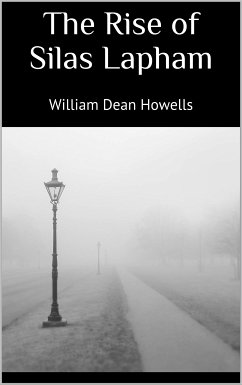"The Rise of Silas Lapham" is a Bostonian novel. A Boston family of the strict Brahminical type, the Coreys, finds itself under obligations for help in a painful emergency to the Laphams, a family of crude manners, mushroom wealth, and sterling virtue. The Laphams, pricked to social ambition by the new acquaintance, build a house on the Back Bay. The contrast of the two social worlds is amusingly depicted in the chapters that record their intercourse; and the elder Lapham allows himself to become intoxicated at a dinner to which he and his family have been self-sacrificingly invited by the Coreys. Meanwhile, Tom Corey, only son of the distinguished family, has obtained a place in the mineral-paint establishment of Silas Lapham, and has seen something informally of the two Lapham girls, the elder of whom, Penelope, is interesting, while her younger sister Irene is dazzlingly beautiful. The young man makes love to the elder girl, but so unobtrusively that he is supposed by both families and both girls to be making love to the other. He proposes to Penelope; she refuses in remorse and dismay; Irene is momentarily furious; the Lapham family is thrown into consternation, and the Corey family, recoiling from any bond with the Laphams, is still further distressed by the discovery that the choice has fallen on the plainer and less valued girl. The question whether a girl may decently marry the man she loves if the joint anticipations of two families have previously bestowed him on a consenting sister seems to be too easy to be worth putting or answering when you have removed it from the texture of the novel; but it is argued extendedly and gravely and dejectedly by the lover and the girl and the girl's parents and the Unitarian minister and the Unitarian minister's wife. This is by far the best novel by Mr. Howells and should not be missed from any bookshelf.








